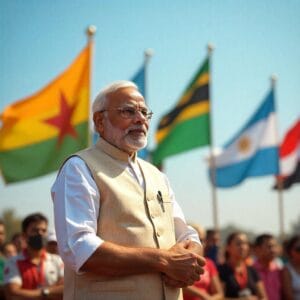Beyond Borders: Modi’s Diplomatic Offensive and India’s Ascendance in the Global South
Prime Minister Narendra Modi’s Diplomatic Marathon: A Game-Changing is embarking on what is being hailed as his longest foreign visit in over a decade, a monumental five-nation tour spanning from July 2 to July 9, 2025. This isn’t just a series of routine diplomatic engagements; it’s a meticulously planned strategic blitz designed to solidify India’s position as a pivotal player in the Global South, with a laser focus on critical minerals, energy security, cutting-edge digital infrastructure, and robust defense cooperation. Get ready for a deep dive into this electrifying diplomatic journey!
The Grand Global South Vision: Why This Tour Matters
In a rapidly evolving geopolitical landscape, India is asserting its leadership by championing the cause of the Global South. This extensive Modi’s visit to five nation tour across Africa, Latin America, and the Caribbean is a testament to this commitment. The overarching goal is to forge stronger, more equitable partnerships that drive mutual growth and prosperity, moving beyond traditional power dynamics.
Ghana: Unlocking West African Potential (July 2-3)
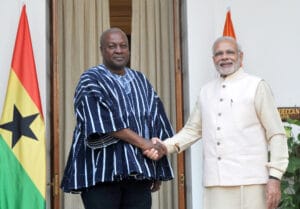
The tour kicks off in Ghana, marking a historic moment as it’s PM Modi’s first bilateral visit to the nation and the first by an Indian Prime Minister in three decades. This rekindled engagement signals India’s renewed focus on West Africa.
Discussions are poised to cover a broad spectrum, from enhancing economic cooperation to boosting defense collaboration. A key agenda item is the exploration of Ghana’s critical mineral potential, crucial for India’s industrial and technological advancements. Furthermore, expect talks around establishing a vaccine hub for West Africa, leveraging India’s pharmaceutical prowess—a true example of South-South cooperation. India’s long-standing capacity-building initiatives, such as the ITEC program, will also be highlighted, reinforcing India’s commitment to human resource development in the region.
Trinidad and Tobago: Celebrating Shared Heritage (July 3-4)
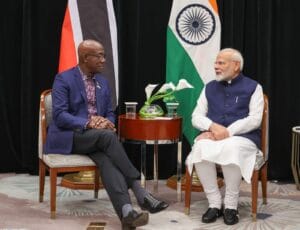
Next, the Prime Minister heads to the vibrant Caribbean nation of Trinidad and Tobago. This visit holds immense cultural significance, coinciding with the 180th anniversary of the arrival of Indian immigrants. It’s the first bilateral visit by an Indian Prime Minister since 1999, underscoring a revitalized bond.
Beyond emotional connections, the talks will delve into strengthening cooperation in diverse sectors like pharmaceuticals, renewable energy, and digital public infrastructure. With a substantial Indian-origin diaspora, the emphasis will also be on robust cultural and educational exchanges. A landmark moment will be PM Modi’s address to a joint session of the Trinidad and Tobago Parliament, a powerful symbol of shared democratic values.
Argentina: The Lithium Lode and Beyond (July 4-5)
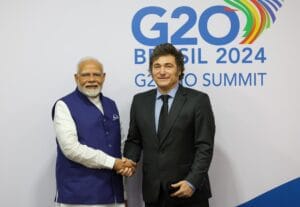
The third stop takes PM Modi to Argentina, a standalone bilateral visit by an Indian Prime Minister in nearly six decades – a clear indicator of India’s strategic pivot towards Latin America. This leg of the journey is particularly exciting for India’s future.
High on the agenda will be discussions with President Javier Milei to enhance cooperation in mining, specifically focusing on Argentina’s vast reserves of lithium, copper, and rare earths. These critical minerals are indispensable for India’s burgeoning electric vehicle and electronics industries, ensuring secure supply chains. Additionally, collaborations in defense manufacturing, digital technology, telemedicine, oil and gas, and renewable energy will be explored, painting a picture of a comprehensive and forward-looking partnership.
Brazil: BRICS Leadership and Bilateral Might (July 5-8)
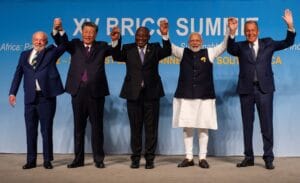
The Brazil leg of the tour is multifaceted, featuring both the 17th BRICS Summit and a crucial bilateral state visit. This stop is central to India’s multilateral ambitions.
The BRICS Summit: A Unified Front Against Terror
From July 6-7, PM Modi will participate in the 17th BRICS Summit in Rio de Janeiro, themed “Strengthening Global South Cooperation for Inclusive and Sustainable Governance.” A significant highlight will be the BRICS declaration on terrorism, expected to be “much to India’s satisfaction.” This declaration is anticipated to reflect a strong consensus on combating terrorism, explicitly acknowledging the recent terrorist act in Pahalgam, India. This unified stance demonstrates global solidarity against such threats and underscores India’s relentless efforts to ensure zero tolerance for terrorism.
Beyond counter-terrorism, BRICS leaders will deliberate on critical global issues, including reform of global governance, peace and security, multilateralism, responsible use of AI, climate action, global health, and economic/financial matters. India’s voice will be instrumental in shaping these discussions.
Bilateral Engagement: Scaling New Heights
Following the summit, PM Modi will undertake a state visit to Brasilia on July 8 for bilateral discussions with President Luiz Inácio Lula da Silva. The economic ambition is clear: to significantly increase bilateral trade from $12.2 billion to an impressive $20 billion. Collaboration will extend to oil and gas, renewable energy, critical minerals, defense, agriculture, traditional medicine, and digital public infrastructure, solidifying Brazil as India’s largest trading partner in South America.
Namibia: Diamonds, Uranium, and Digital Bridges (July 9)
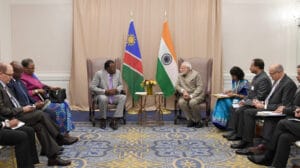
The final destination of this impactful tour is Namibia. This marks the third-ever prime ministerial visit from India to Namibia, signaling a deeper engagement with Southern Africa.
The visit holds immense strategic importance for India’s resource security. Discussions will likely focus on diamonds, with the aim of facilitating more direct trade from Namibia’s rich marine deposits to India, where many Indian processing companies already operate. Crucially, cooperation on critical minerals like cobalt, lithium, and rare earth elements will be a priority, aligning with India’s clean energy transition goals. Furthermore, India is keen on exploring uranium supply agreements from Namibia, a major producer, to support its civilian nuclear energy program.
Beyond resources, a groundbreaking agreement to implement India’s Unified Payments Interface (UPI) in Namibia is expected, further expanding India’s innovative digital payment system globally. PM Modi will also address the Namibian Parliament, a symbolic gesture reinforcing the deep historical ties between the two nations.
A Legacy-Defining Tour
This longest foreign visit in over a decade for PM Modi is more than just a diplomatic itinerary; it’s a bold declaration of India’s proactive foreign policy. By focusing on critical resources, digital innovation, defense ties, and robust partnerships across the Global South, India is not just seeking to secure its own future but also to champion a more inclusive, balanced, and prosperous world order. This tour is poised to leave an indelible mark on India’s global footprint.
For more Updates visit: The Morning Draft


